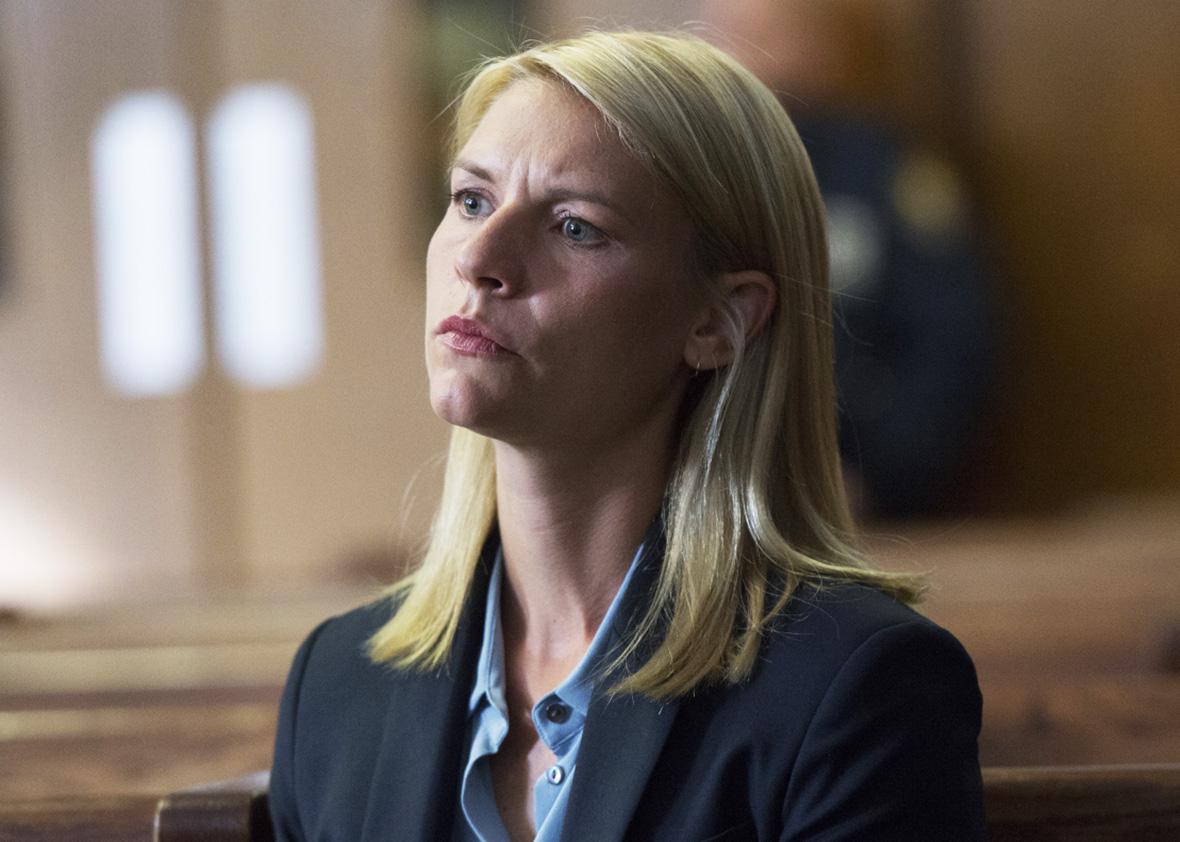In its sixth season, after having engaged in geopolitical crises in Iran, Pakistan, and Germany, Homeland arrives in Brooklyn. The setting suits the downscaled ambitions of the once indispensable, now reliably watchable Showtime series: In the age of #PeakTV, to say nothing of the sun-blotting #PeakDonald, a satisfying proficiency is no longer enough to make a show stand out, though it is more than enough to curl up to. Homeland, a series that made its name tackling terrorism and mental illness, has become unexpectedly comforting, not because its storylines are so tame but because everyone involved, both on screen and behind the scenes, is so unerringly competent. Carrie Mathison (Claire Danes) may be guided by her instincts, but, reassuringly, they really are instincts you can trust.
As the new season begins, Carrie is nestled in brownstone Brooklyn, completely in her right mind, living with her redheaded daughter, devoted to a nonprofit protecting the civil liberties of Muslim Americans. Carrie finds herself advising a young Muslim American born to Nigerian parents, Sekou (J. Mallory McCree), who has been arrested on suspicion of materially supporting terrorism and faces exceedingly punitive charges. Sekou seems—and who knows what twists lie ahead!—like a devout young man who is deeply skeptical of the American government (as a hobby he records videos of terrorist sites) but one who has assiduously stayed on the right side of the law. He is nevertheless on the verge of being collateral damage for a corrupt, anxious FBI willing to do anything to put away anyone who appears even the slightest bit shady.
The storyline shares quite a bit with The Night Of and Serial, two crime stories about Muslim Americans caught up in the criminal justice system: Expect similar twists, turns, and a focus on long-term effects. But this being Homeland, Sekou’s case is not all that’s going on. Personally, Carrie is caring for Peter Quinn (Rupert Friend), who, despite having gone into the white light at the end of Season 5, is not dead. Homeland continues to persist in not killing off its leading men when it should, but in bringing back Peter it has outdone itself: Instead of just reviving a character who is dragging the show down, it has brought back a character who is literally, distressingly dragging. Peter is a derelict shell of his former self, saddled with mental and physical deficits, living in a veterans facility, bitter, heavily medicated, still messed up about Carrie, and occasionally popping out for a blow job and a hit at the local crack house. Peter’s situation is a sordid tragedy—and he doesn’t even know the role that Carrie played in, possibly, making his condition worse. (She did save his life, but then she also revived him too soon against medical advice.)
This being Homeland, the third strand of the season involves geopolitics. In her nonexistent spare time, Carrie is surreptitiously advising the president-elect, Elizabeth Keane (Elizabeth Marvel, who recently played presidential candidate Heather Dunbar on House of Cards: You win some fake presidential elections, you lose some). Luckily for Homeland, which, in selecting a female president-elect, clearly read all the same polls everyone else did, Keane has some similarities to Trump, too. She is conducting her transition from New York City and is eager to pick a fight with the intelligence community, with whom she has a personal grudge. Saul Berenson (Mandy Patinkin) and Dar Adal (F. Murray Abraham) quickly swing into action to contain Keane, which includes trying to determine if Carrie is betraying the agency by advising her.
Homeland has worked through both its more ambitious and outlandish phases, to arrive at an extremely reliable, pretty smart, often tense plateau, where Danes, Patinkin, and Abraham do excellent work. At this point, its plot development feels as ruthlessly competent as its characters. It’s not revelatory, but it’s also much better than most shows in their sixth seasons can claim to be. What it does well, it does better than it needs to: In Episode 2 of the new season, Danes has her saddest, ugliest cry face yet.
